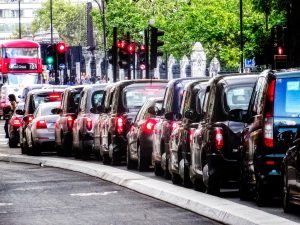With the dramatic success of Reform UK in the local elections on 1 May, attention must now turn to considering how they will run the local authorities they now control. Reform is a fairly new political party, and has never controlled a local authority before. On a national level, most who follow politics will now be familiar with their headline policies: support for lower immigration, opposition to diversity, equality and inclusion initiatives and scepticism towards climate change and net zero. However, Reform’s policies and procedures on a local level are much less clear. With Reform winning outright control of ten local authorities on 1 May, trying to predict how Reform will run the local authorities they control will be important to anyone who intends to engage with local authorities in the coming months and years.
In which local authorities did Reform win outright control?
Reform UK won outright control of the following local authorities:
- Derbyshire County Council
- Kent County Council
- Lancashire County Council
- Lincolnshire County Council
- Nottinghamshire County Council
- Staffordshire County Council
- Durham County Council
- North Northamptonshire Council
- West Northamptonshire Council
- City of Doncaster Council
The Party’s candidates also won the combined authority mayoral elections in Greater Lincolnshire and Hull and East Yorkshire.
What has Reform said about their policies in local government?
Reform did not release an election manifesto for the 2025 Local Elections. In his campaign launch speech on 28 March, the Leader of Reform UK, Nigel Farage, singled out potholes as a ‘symbol for broken Britain’, and pledged to cut local government spending by using a ‘British form of DOGE’ to root out waste.[1] This latter announcement refers to the American non-governmental Department of Government Efficiency, run by Elon Musk, and was repeated by several local Reform candidates in their local election campaigns. Further information about Reform’s policies in local government can be inferred from statements by Reform candidates in their election campaigns, or by senior figures, including new leaders of local authorities, in the weeks after the elections. From this, three themes emerge:
Firstly, Reform’s local policy will reflect their national policies of opposition to immigration, net zero and DEI initiatives. Reform councillors are expected to use the powers they have as local authorities to undermine or roll back these policies, for instance by rolling back DEI training[2] and obstructing renewable energy projects[3]. In addition, Reform have signalled that they will seek to oppose these policies more generally by setting up publicity stunts or open confrontation with Westminster. Most notably, Reform’s Chairman Zia Yusuf has pledged to use ‘every instrument of power available’, including legal challenges, to block the housing of asylum seekers in areas controlled by Reform.[4] Reform’s work in local government will therefore be both a microcosm of their policies on a national stage, but also a staging ground for attacks on the Labour Government in Westminster.
Reform’s core ideological beliefs will also form the basis of more substantial measures. Most notably, Reform’s opposition to net zero and similar environmental measures will likely see them take a pro-car approach to local government, scorning policies such as low traffic neighbourhoods.
Secondly, Reform has promised to slash government waste in local authorities. Farage has promised to emulate the American Department of Government Efficiency (DOGE), across local authorities in England.[5] He singled out ‘consultants’, ‘climate change’ and staff who ‘work from home’, as targets of these cuts.[6]
Thirdly, in common with all political parties, Reform will focus some attention on local issues. Potholes are a regular target of local election campaigns, and Reform’s 2025 campaign was no different, with Farage criticising local authorities for failing to fix them in his speech at Reform’s campaign launch.[7] Similar local issues can be identified across the country, for instance the new Mayor of Hull and East Yorkshire, Luke Campbell, promised to ‘fix the bus network’ as one of his top three pledges.[8]
The problems that lie ahead for Reform UK
Three major problems lie ahead for Reform-run local authorities.
Firstly, a lack of local government experience may hamper their efforts to implement policy and run local government effectively. Some newly elected councillors and mayors have plenty of political experience. For instance, the Mayor of Greater Lincolnshire, Andrea Jenkyns, is a former Conservative MP, while the new Leader of Derbyshire County Council, Alan Graves, was first elected to Derby City Council, as a Labour candidate, back in 1995.[9] Most, however, lack any experience of local government or politics. The new Mayor of Hull and West Yorkshire is a former boxer who has never entered politics before, while the Leaders of many local authorities, including West Northamptonshire, County Durham and Staffordshire, have never been councillors before. That lack of experience could mean Reform lack the expertise and understanding needed to effectively implement their agenda.
Secondly, confrontation with Westminster may distract local authorities from delivering services for their residents. While Reform’s plans to confront Westminster on national issues could be popular with their base, it could leave councillors and council officials distracted, with not enough time or money to resolve local issues that affect local authorities. In particular, any protracted legal battle over asylum seekers may end up costing Reform’s local authorities an enormous amount of money, at a time when local authority budgets are already strained.
Finally, Reform will face the same funding constraints that affect every local authority. Local authorities are struggling with funding cuts, and Reform-controlled local authorities will be no different. A large proportion of local authority spending is spent on statutory services, which local authorities must legally provide, with some estimates suggesting up to 80% of spending in some local authorities being spent on adult social care and children’s services alone.[10] Furthermore, local authority budgets have been slashed in real terms in recent years.[11] Therefore, Reform-run local authorities may soon find out that there is much less waste to cut than they expect, and they could be forced to take difficult decisions regarding council tax and spending.
BREVIA CONSULTING PROVIDES STRAIGHTFORWARD POLITICAL ADVICE AND SUPPORT TO BUSINESSES AND ORGANISATIONS
Discover how Brevia can help you and your organisation by contacting the Brevia Team on 020 7091 1650 or contact@brevia.co.uk
[1] BBC News, Reform UK launches ‘most amibitous’ local election campaign, 28 March 2025, link
[2] The Telegraph, Reform councillors will refuse diversity and climate change training, says Farage, 6 May 2025, link
[3] The Guardian, Reform’s green energy assault in Lincolnshire ‘puts 12,200 jobs at risk’, 7 May 2025, link
[4] BBC News, Reform considers legal challenges against asylum hotels, 4 May 2025, link
[5] The Times, Nigel Farage promises Musk-style cuts and an end to working from home, 2 May 2025, link
[6] Ibid
[7] BBC News, Reform UK launches ‘most amibitous’ local election campaign, 28 March 2025, link
[8] Hull Daily Mail, Luke Campbell reveals what would be his top 3 priorities as Hull and East Yorkshire Mayor, 7 April 2025, link
[9] BBC News, Who is Derbyshire’s new leader Alan Graves?, 17 May 2025, link
[10] The Times, Nigel Farage promises Musk-style cuts and an end to working from home, 2 May 2025, link
[11] Ibid



